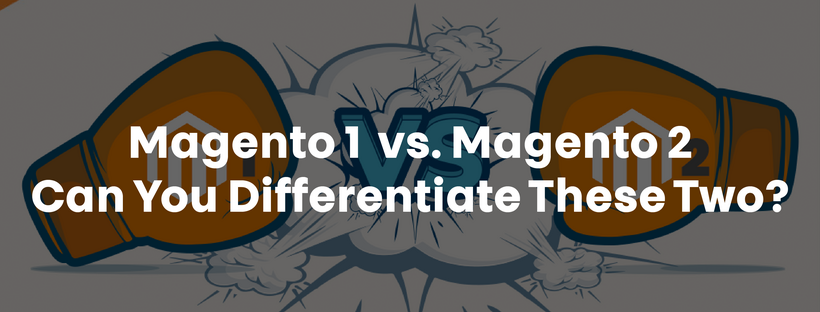You may have known that Magento has 2 versions: Magento 1 vs Magento 2. Magento 2.0 was first released on November 17th, 2015, after 8 years of development of the Magento platform. And more and more businesses have used Magento 2 ever since.
This is because Magento 2.0 has not only inherited optimal features from the first version but also contains more advantages. What exactly are the differences between these 2 versions? And should you switch to the second version?
Let’s find out in this blog. This article will provide some main differences between Magento 1 vs 2 in terms of:
- Architecture
- Performance
- Supporting extensions
- Front-end
- Back-end
- SEO features
Magento 1 vs Magento 2 – What Are The Differences?
Architecture

In terms of the architecture, there are some notable changes in Magento 1 vs Magento 2:
- PHP: Magento 2 is built by using the latest PHP versions, which contain some development to improve security and speed performance.
- PSR: While Magento 1 didn’t support PSR (PHP Standard Recommendations), Magento 2 technology stack contains PSR 0 to PSR 4, each of which supports different standards of code for greater convenience when coding.
- HTML5: HTML5, which is the latest HTML version that brings about many benefits for developers, is applied to Magento 2. Several advantages are: Easily handling errors, easily making the mobile web, customizing data attributes effortlessly, etc.
- JS-Jquery: Magento 2 uses JS-Jquery instead of Prototype. JS-query is smaller in library size, faster, has more plugins available, and contains more features than Prototype.
- Nginx 1.7 or greater: In Magento 2, Nginx is a reverse proxy server for protocols like HTTPS, HTTP, POP3, SMTP, and IMAP. Besides, Ngnix also acts as a load balancer, an HTTP cache, and an origin web server.
- Compared to Magento 1, we can reduce unnecessary browser’s operations in Magento 2 on the client’s side because of bundled and minimized JavaScript.
- Some other technology stack changes include Apache, Composer, Symfony, CSS3, LESS pre-processor, Solr.
To sum up those significant updates, please take a look at the comparison table below:
| Magento 1 | Magento 2 |
|---|---|
| PHP 5.2.x - 5.5.x | PHP 5.6.x - 7.0.2 - 7.0.6 (Latest versions) |
| Not support | PSR 0 to 4 |
| HTML | HTML5 |
| JS-Prototype | JS-Jquery |
| MySQL | MySQL 5.6.x or higher |
| Apache 2.x | Apache 2.2 - 2.4 |
| Not support | Ngnix 1.7 or higher |
| Solr (EE) | Solr 4.x |
| Not support | Symfony |
| Not support | Composer |
| Zend Framework 1 | Zend Framework 1 - 2 |
Speed Performance
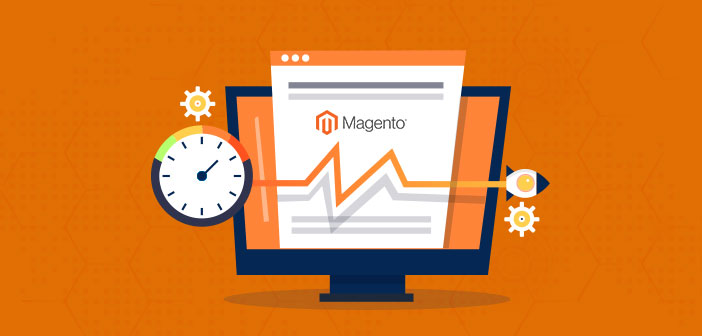
Speed is essential in eCommerce. It is one of the main reasons for customers to decide whether or not to purchase at your store.
And Magento 1 vs 2’s speed performance is quite different. In comparison with Magento 1, Magento 2’s loading time is 30% – 50% faster. And compared to the standard of 2-3 seconds, Magento 2’s front-end speed performance is even more rapid.
Besides, Magento 2 can:
- Deal with 39% more orders in an hour
- Respond to the server instantly to browse the catalogue
- Handle up to 10 million page views per hour
- Enable 38% faster checkout time
Without a doubt, Magento 2 is the winner in this category.
Supporting Extensions

In the market, there are many extensions available that are developed by many eCommerce solutions providers. However, Magento 1 extensions have run into many difficulties, for example, time-consuming when installing or manually resolving conflicts, etc.
On the other hand, Magento 2 plugins allow code to overlap core code rather than override it. Moreover, because of HTML5, CSS3, LESS pre-processor, and Require JS supported, the process of installation or customization is much simpler.
Front-end

In terms of front-end design, there are several apparent changes, in which Magento 2 includes more useful features than the first version:
- Ajax cart, one-page checkout: Magento 2 default add ajax cart and one-page checkout, which brings about much greater convenience for customers when shopping online.
- Responsiveness: Magento 2 web design is responsive, which means that you can display your site on multiple devices.
- Rapid loading time: Magento 2 front-end takes much less time to load pages in full.
Back-end (Dashboard)
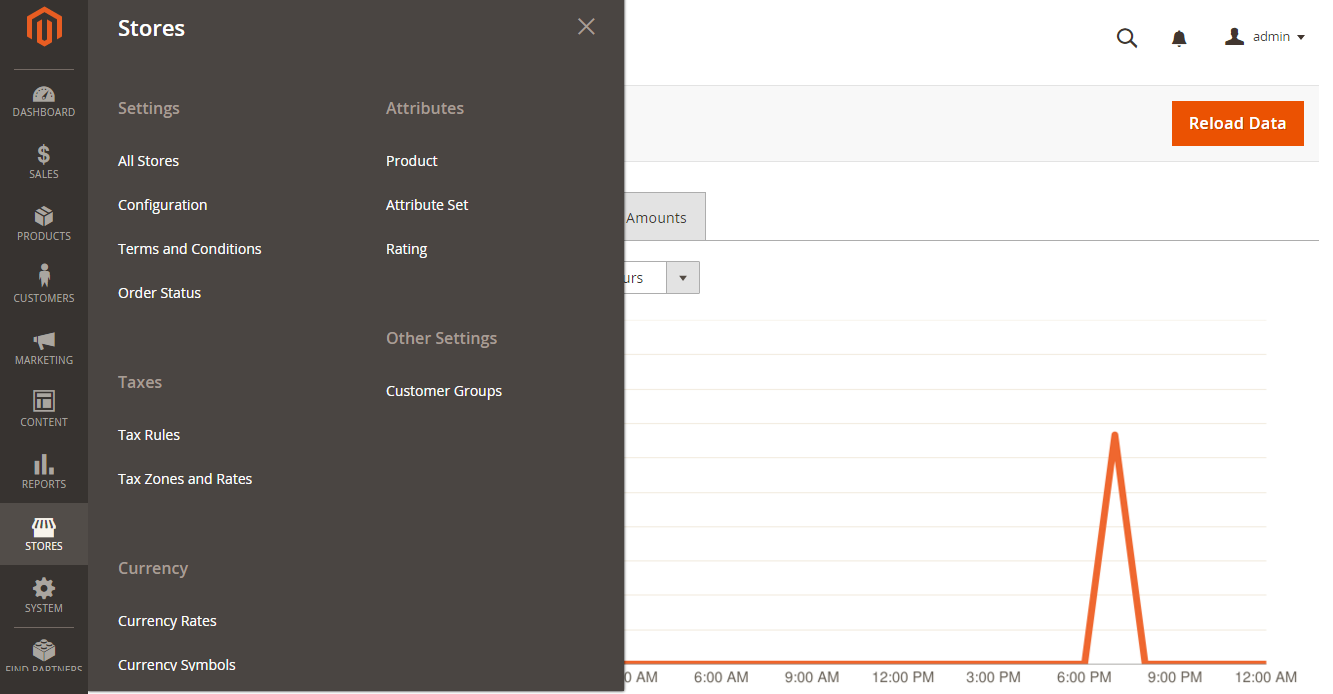
Not only the front-end, but the Magento 2 back-end also has significant improvements.
Different from Magento 1, the dashboard in Magento 2 is much more user-friendly, responsive with a simple design. All functions are clearly divided into primary categories, which is more convenient for admins to manage their stores.
Also, the Magento 2 admin panel shows some useful information in the most understandable way such as lifetime sales, average orders, last orders, top search terms, and many others.
Below is the Magento 1 admin panel. You can see a big difference between 2 versions.
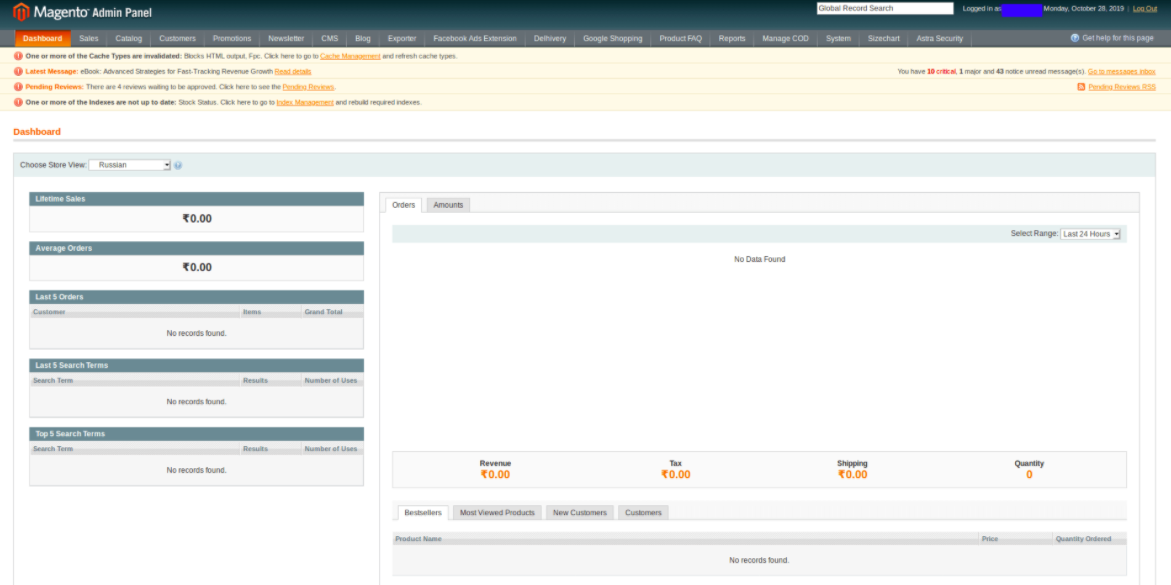
SEO Features
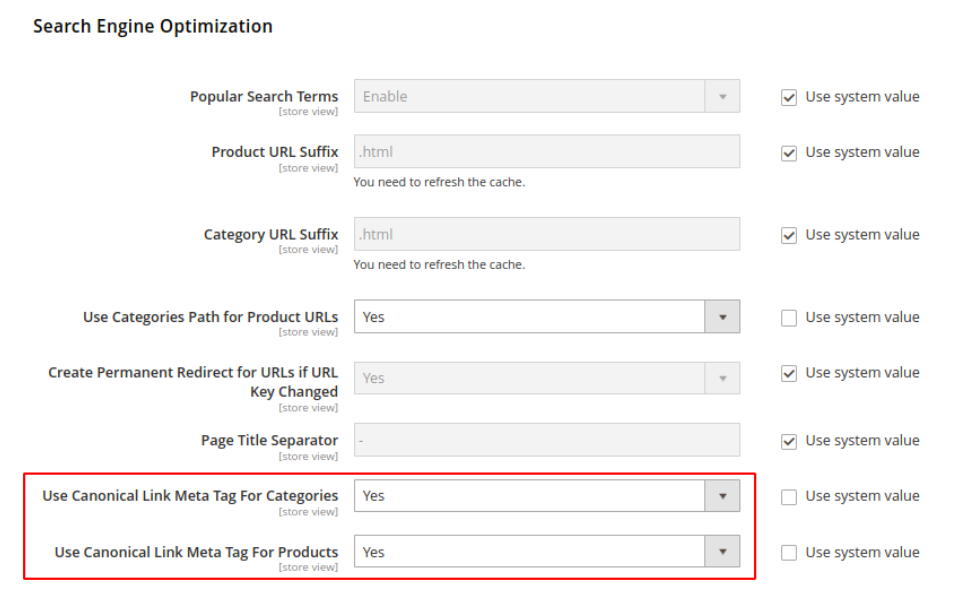
Magento 2 has not yet been perfect in SEO, but compared to the first version, there are some improvements. For example, Magento 2 includes Meta Title, Meta Description, Meta Keywords for individual pages; or it is optimized for mobile, which is good for ranking.
Magento 1 vs Magento 2 – Should You Migrate to Magento 2?
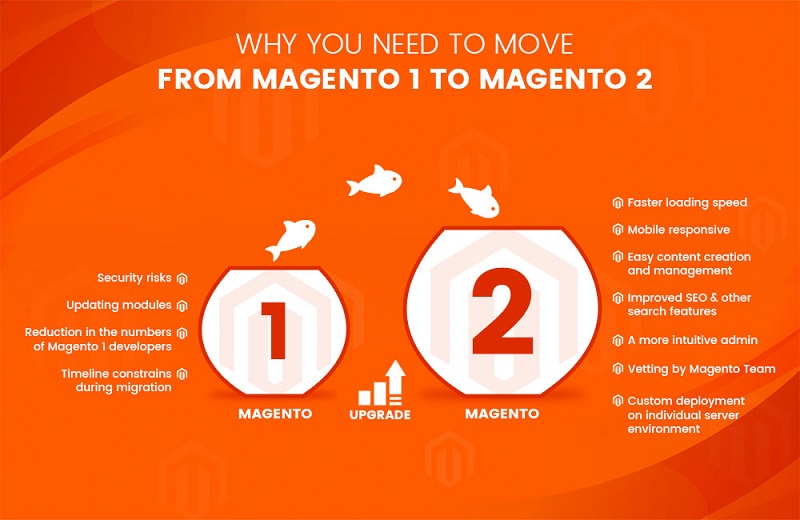
So, Magento 1 vs Magento 2 – Which one is better?
Recently, businesses tend to migrate to Magento 2. However, there are many others not doing so because of many reasons: fear of change, expensive migration services, satisfied customers with Magento 1, etc.
But Magento 1 is no longer supported after June 30th, 2020. This means that if you are using Magento 1, you cannot update, resolve bugs, or apply security patches anymore. And it will bring about a big threat for the security to your site and your users.
Besides, Magento 2 contains many advantages: better UI, rapid speed performance, smooth dashboard.
In conclusion, Magento 1 is outdated at present, and we highly recommend migrating your platform to Magento 2. It will bring you a lot of benefits.
Conclusion
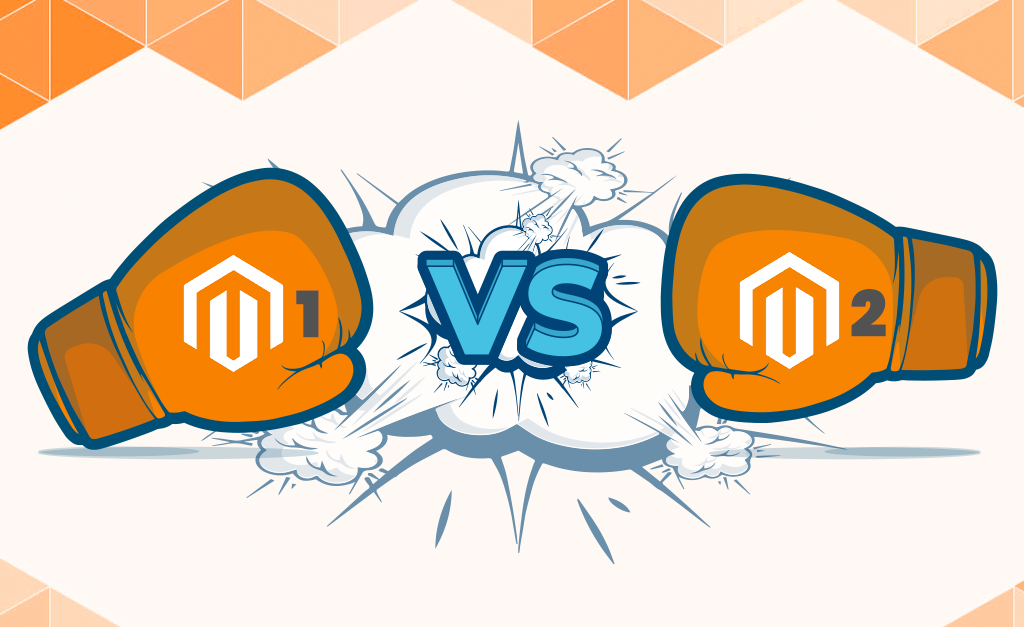
Above is a brief comparison of Magento 1 vs Magento 2 in terms of many categories. And we have to say that Magento 1 is now outdated. Therefore, you should start using Magento 2 now to guarantee sustainability in the long term.
We hope that this blog of Magento vs Magento 2 is useful for you. If you have any questions about this topic, please feel free to ask.
Thanks a lot for reading!

